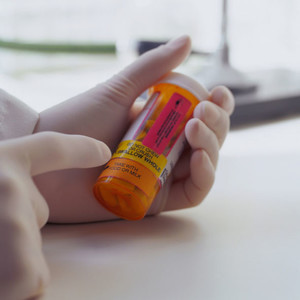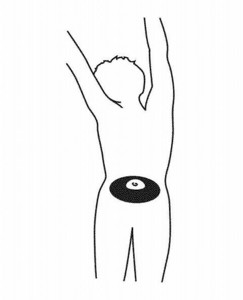In June 2013, Ireland signed a new Act into law [the Health (Pricing and Supply of Medical Goods) Act 2013] paving the way for generics substitution and reference pricing for the first time in that market. As a consequence of the new legislation, Irish patients became more likely than ever to encounter generics.
As the opinions of general practitioners (GPs) are a key factor that could influence the successful achieving of the goals of the new legislation, the aim of this study was to assess the beliefs, attitudes held and behaviours towards generics amongst GPs – as representatives of prescribing physicians in Ireland [1].
One-to-one semi-structured interviews were performed with consenting GPs, along with additional quantitative assessment of perceptions towards generics. A majority of GPs stated that they prescribe generics actively and that, in general, they prescribe generics in preference to originator medicines, with the primary motivation for this being reduced cost to the patient.
Most of the GPs stated that there are times when they would preferentially prescribe the originator rather than an equivalent generic medicine, for example, situations including: requirement for narrow therapeutic index drugs [2] and those which are not readily interchangeable (e.g. anticonvulsants, anticoagulants); habit, combined with being more familiar with proprietary, i.e. trade, name, thus facilitating prescribing; patient preference or request; variability in the presentation of generics and the potential for this to cause stress or confusion for patients [3]; or the originator being the same price as, or cheaper than, the generic medicine.
Interviewed GPs predominantly believed that generics were generally of the same quality, safety and efficacy as the originator medicine (non-equivalent medicines, notwithstanding) and, while a majority of GPs said that they would take a generic medicine themselves, nearly 15% of participants expressed a preference for originator brands, when offered a choice between originator and generic medicines, even if more expensive.
While nearly all of the interviewed GPs reported receiving complaints from patients related to use of a generic medicine (ranging from lack of or no efficacy to different or increased side effects) about one-third of them further stated a belief that patients are prejudiced against generics, and this perception leads to a nocebo effect; hence that patient complaints about generics are often imagined rather than actual. (The nocebo effect is a detrimental effect on health produced by psychological or psychosomatic factors such as negative expectations. It is, essentially, the opposite of the placebo effect.)
This first published qualitative exploration of GP attitudes in an Irish context shows that GPs appear to have a relatively positive view towards generics, albeit tempered with a concern for their patients’ abilities to deal with sometimes confusing changes in the appearance of such medications. Moreover, in an era when usage of generics is an increasing and necessary facet of cost control in healthcare provision, this study provides some insight into persistence of negative opinions and uncertainty regarding generics by GPs in Ireland. Furthermore, as the opinions of GPs are key factors influencing the views that patients exhibit towards generics, improving confidence in generics within this key stakeholder group may have a positive knock-on effect on public perceptions of generics.
Conflict of interest
The authors of the research paper [2] declared that there were no conflicts of interest.
Abstracted by Suzanne S Dunne, PhD, Centre for Interventions in Infection, Inflammation and Immunity (4i), Graduate Entry Medical School, University of Limerick, Ireland.
Editor’s comment
Readers interested to learn more about perceptions and attitudes towards generics are invited to visit www.gabi-journal.net to view the following manuscripts published in GaBI Journal:
Perceptions of physicians from private medical centres in Malaysia about generic medicine usage: a qualitative study
Challenges to generic medicines utilization in Yemeni healthcare system
Readers interested in contributing a research or perspective paper to GaBI Journal – an independent, peer reviewed academic journal platform – please send us your submission here.
Related articles
Patient perceptions of generics in Ireland
Irish pharmacists’ perceptions and attitudes towards generics
References
1. Dunne SS, Shannon B, Cullen W, Dunne CP. Beliefs, perceptions and behaviours of GPs towards generic medicines. Fam Pract. 2014;(4):467-74.
2. Maliepaard M, Yu Y, Leufkens HGM. Equivalence of generic medicines in general and immunosuppressants in particular – a regulatory opinion on switching of ciclosporin, tacrolimus and mycophenolate mofetil. Generics and Biosimilars Initiative Journal (GaBI Journal). 2013;2(2):86-90. doi:10.5639/gabij.2013.0202.019
3. Håkonsen H, Toverud E-L. A review of patient perspectives on generics substitution: what are the challenges for optimal drug use. Generics and Biosimilars Initiative Journal (GaBI Journal). 2012;1(1):28-32. doi:10.5639/gabij.2012.0101.008
Permission granted to reproduce for personal and non-commercial use only. All other reproduction, copy or reprinting of all or part of any ‘Content’ found on this website is strictly prohibited without the prior consent of the publisher. Contact the publisher to obtain permission before redistributing.
Copyright – Unless otherwise stated all contents of this website are © 2015 Pro PharmaCommunications International. All Rights Reserved.








 0
0











Post your comment